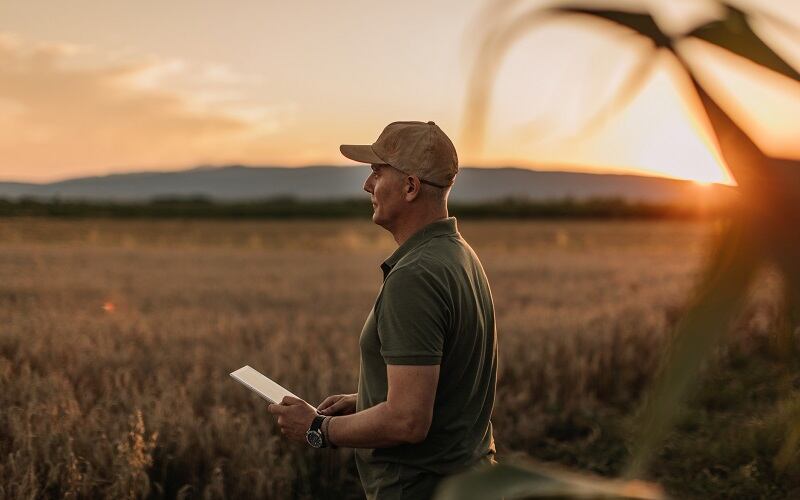British Columbia-based Miraterra acquired ag-tech start-up Trace Genomics for an undisclosed amount of money, expanding the company’s capabilities to include soil biology measurements, Nate Kelly, CEO and board member for Miraterra, told AgTechNavigator.
Founded in 2022, Miraterra uses Raman spectroscopy to measure complex materials through its Digitizer device, circumventing the need for chemical processes, Kelly explained. Miraterra raised its seed round last year, led by At One Ventures with participation from Cisco Foundation, iSelect Fund, One Small Planet, Overview Capital, Pelican Ag, S2G Ventures and Starshot Capital.
Started in 2015, Trace provides soil intelligence, including nitrogen and phosphorus levels as well as data on 225 pathogens from over 70 crops, through DNA sequencing. Trace raised a $10.5 million Series B round last February from S2G Ventures, Rabo Ventures and Ajax Strategies.
Miraterra “invented this breakthrough measurement instrument for chemistry with application in soil. Since then, we have expanded the application from soil to plants to feed and to food. And so, acquiring the Trace business was a natural continuation of that understanding journey because we can now understand biology in soil, which is a very essential part of understanding soil health,” Kelly elaborated.
As part of the acquisition, Miraterra acquired all of Trace’s intellectual property, in-market products and an analytical lab in Ames, Iowa, Kelly explained. Miraterra hired on a portion of Trace employees, including those working on DNA sequencing in the Iowa lab and several commercial team members, he added.
Miraterra is spearheading its growth and revenue strategy with the acquisition, as the company plans to service “legacy Trace customers and to expand its services to new audiences,” the company shared in a press release.
“Acquiring the Trace assets allows us to accelerate the revenue plan because Trace was delivering some pretty significant revenue,” he elaborated.
Analyzing soil’s fingerprint with Raman spectroscopy
Miraterra’s technology uses multiple lasers, advanced signal processing and AI to measure soil health, he said. Raman spectroscopy injects energy into molecules, creating a vibrational pattern that serves as a “fingerprint of that molecule,” Kelly explained.
Raman spectroscopy is a process where samples remain intact through the measurement process, unlike destructive processes, like gas chromatography-mass spectrometry.
“The problem with Raman is that the signal is very weak, and with complex materials like soil, when you inject energy into soil, the fluorescence that it generates can be anywhere from 1,000 to a million times stronger than that little Raman’s fingerprint that we’re looking for,” Kelly elaborated.
He added, “Our big breakthrough has been a way to separate the fluorescence from the signal, so that we can actually pull that signal up into our machine learning and AI models to help understand what it is that we are seeing from the spectrum that we are gathering. So, it is really making visible those unique vibrational patterns, and then when you do that, you get just billions and billions of data points.”
Instead of going to farmers directly, Miraterra is working with labs across the world to build trust in its technology, Kelly explained. “Farmers and agronomist trust their soil testing lab,” Kelly noted in a previous press release.
Miraterra is also focusing on democratizing soil insights that can improve on-farm conditions, Kelly said. The company obtained 50-100 terabytes’ worth of Trace data and is actively searching for academics to find applications for the insight, he added.
“As I talk to farmers and growers across the Midwest and Canada, they say the same thing to me, ‘We already get binders full of data. We just do not know what to do with that.’ The thing I’m mainly focused on is on democratizing measurements and making data very actionable and meaningful,” he elaborated.




